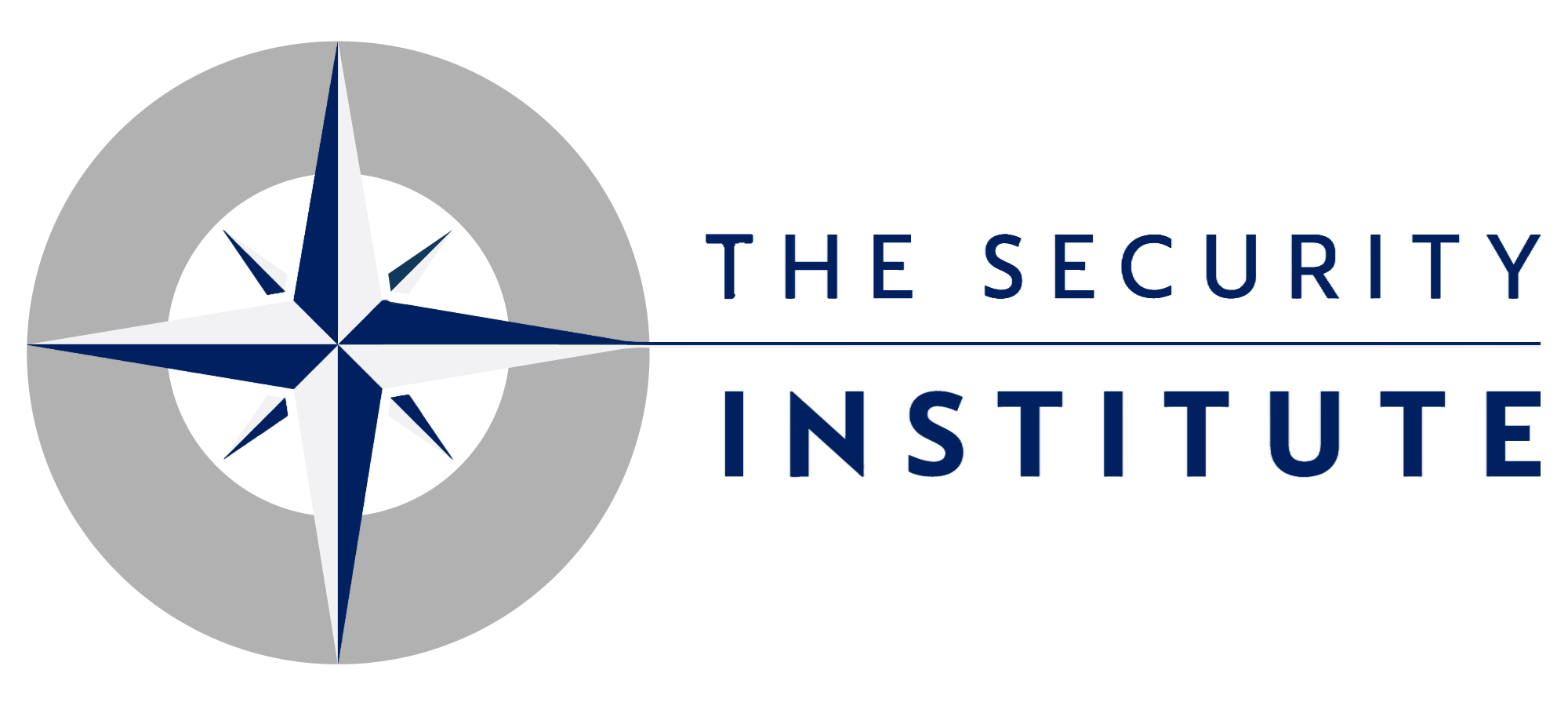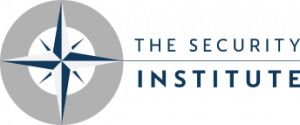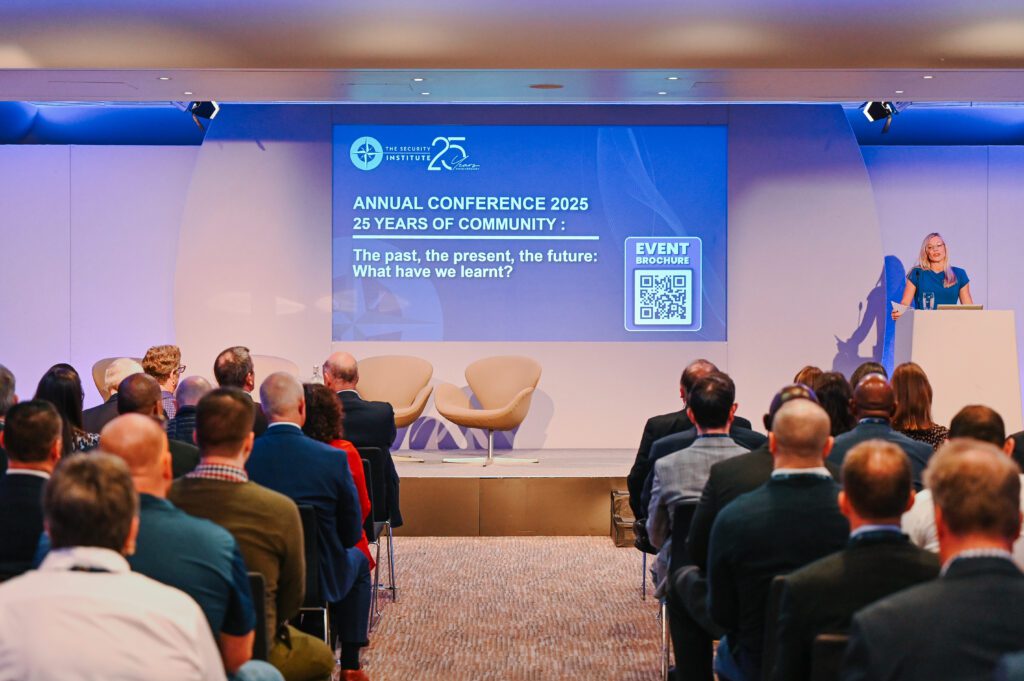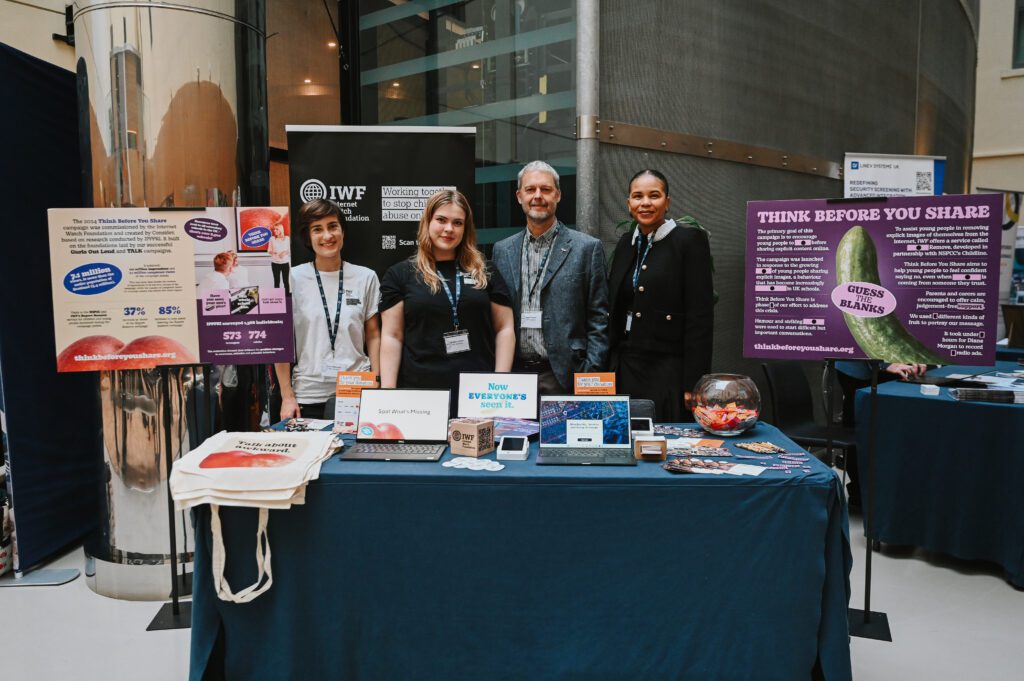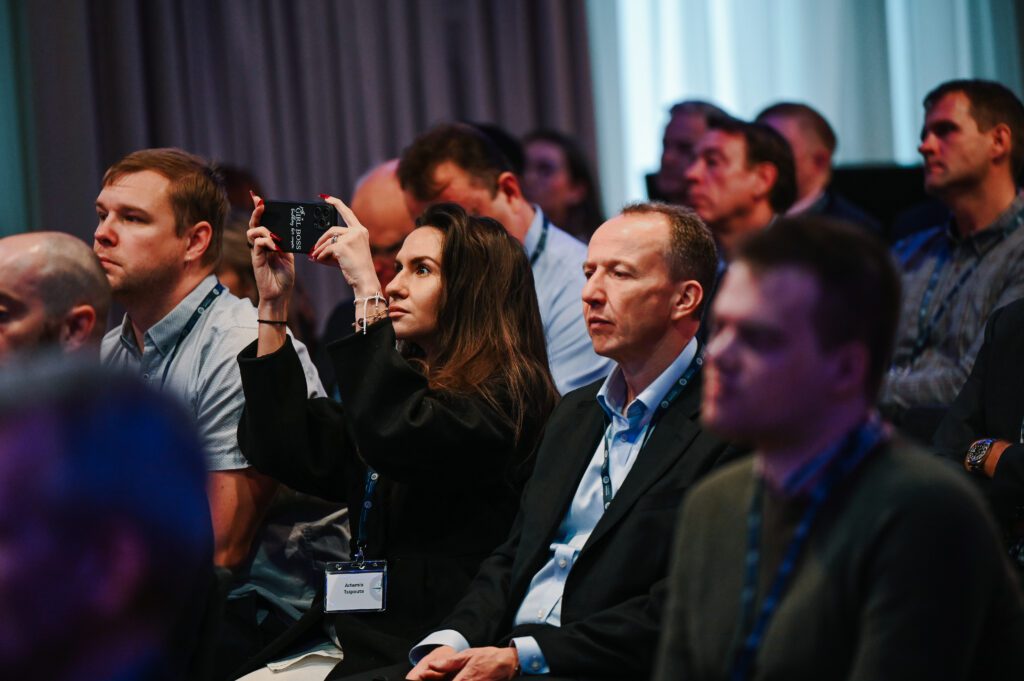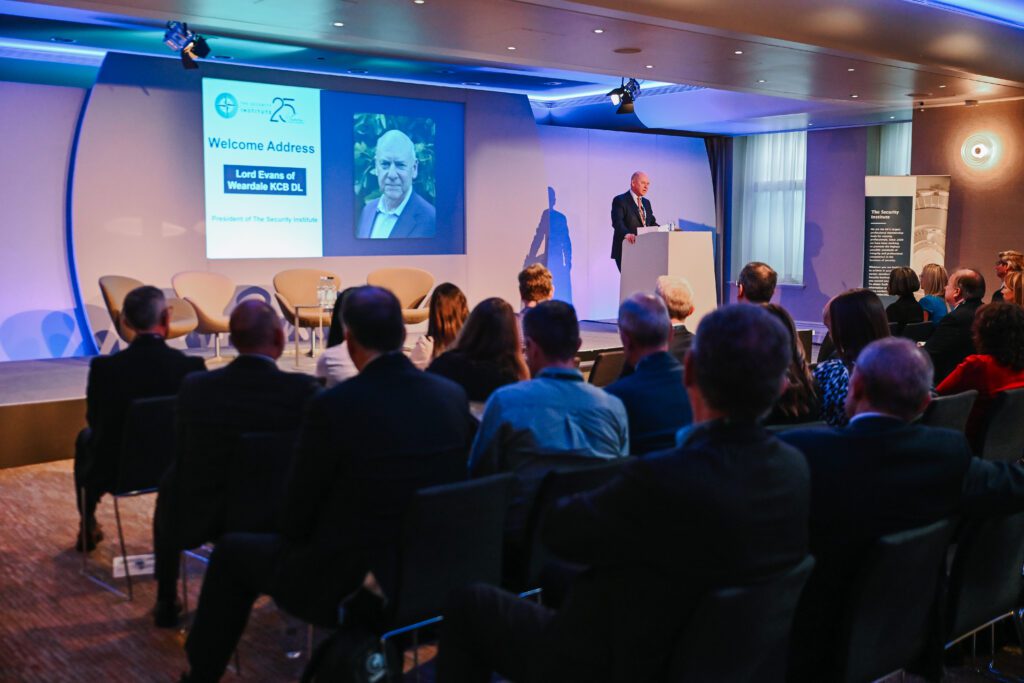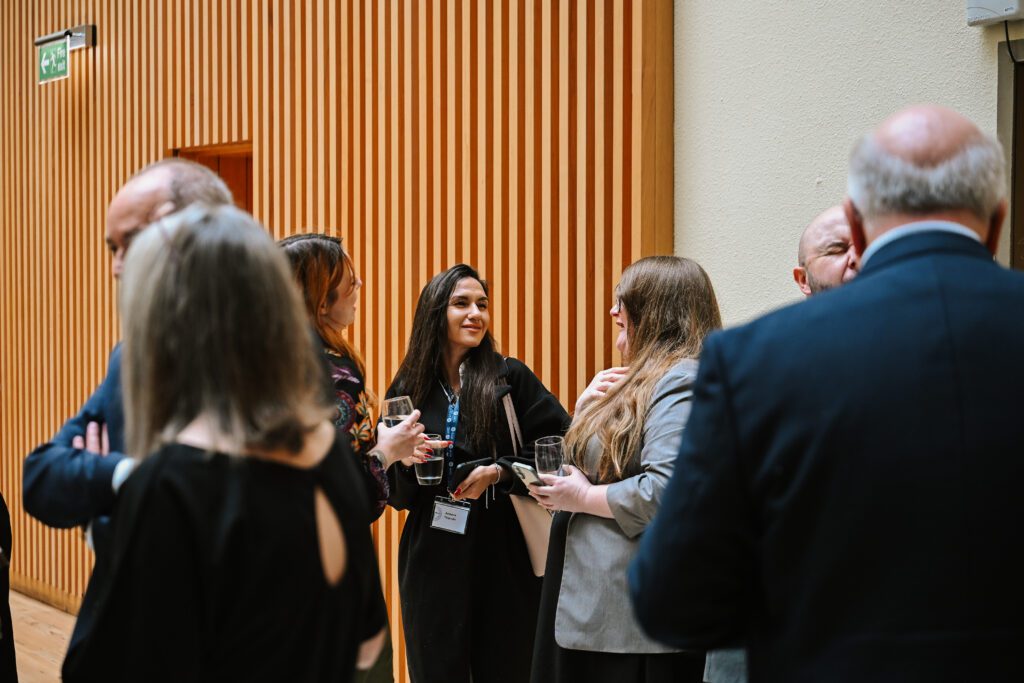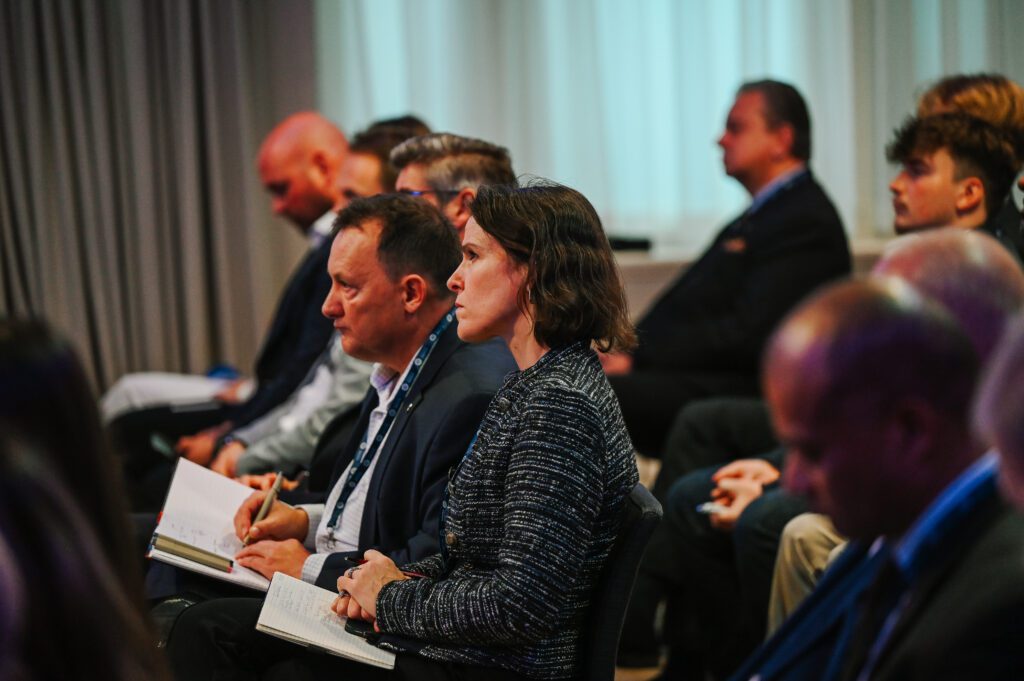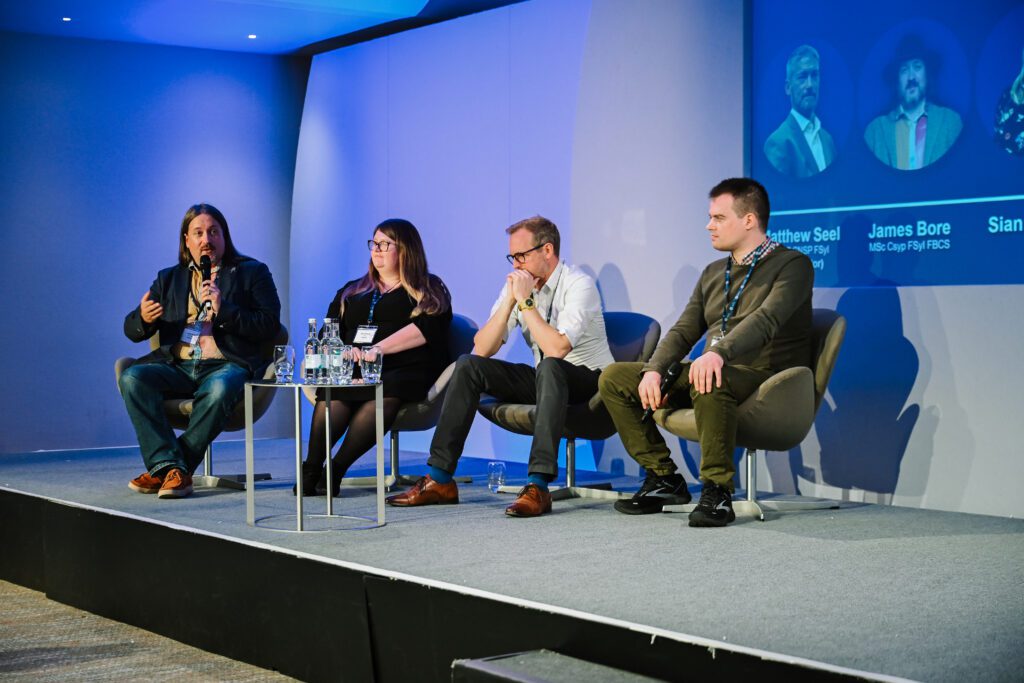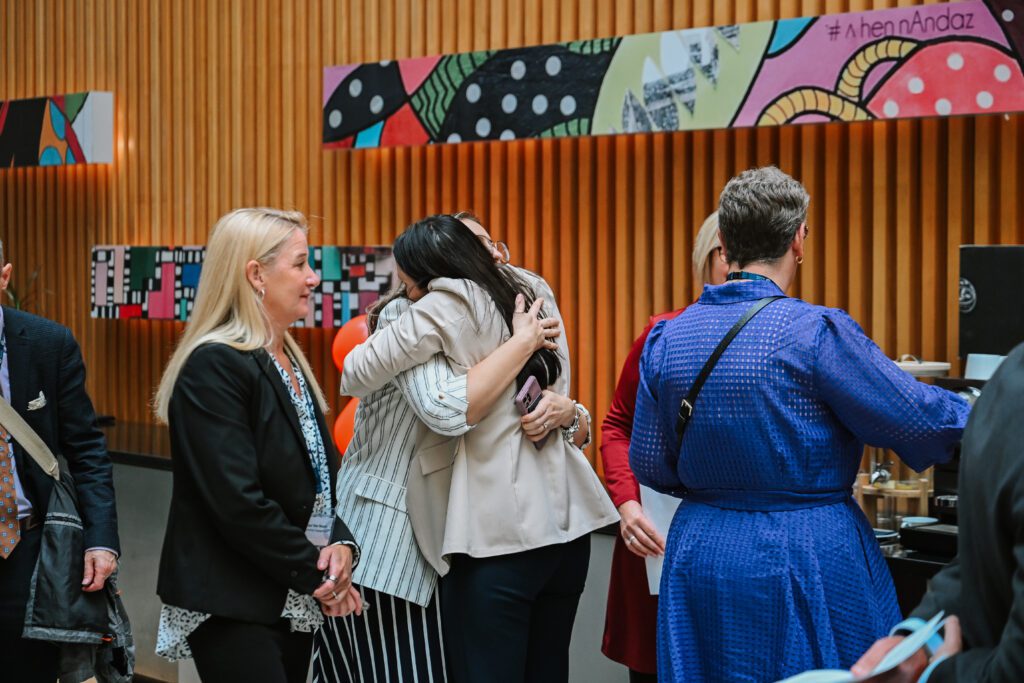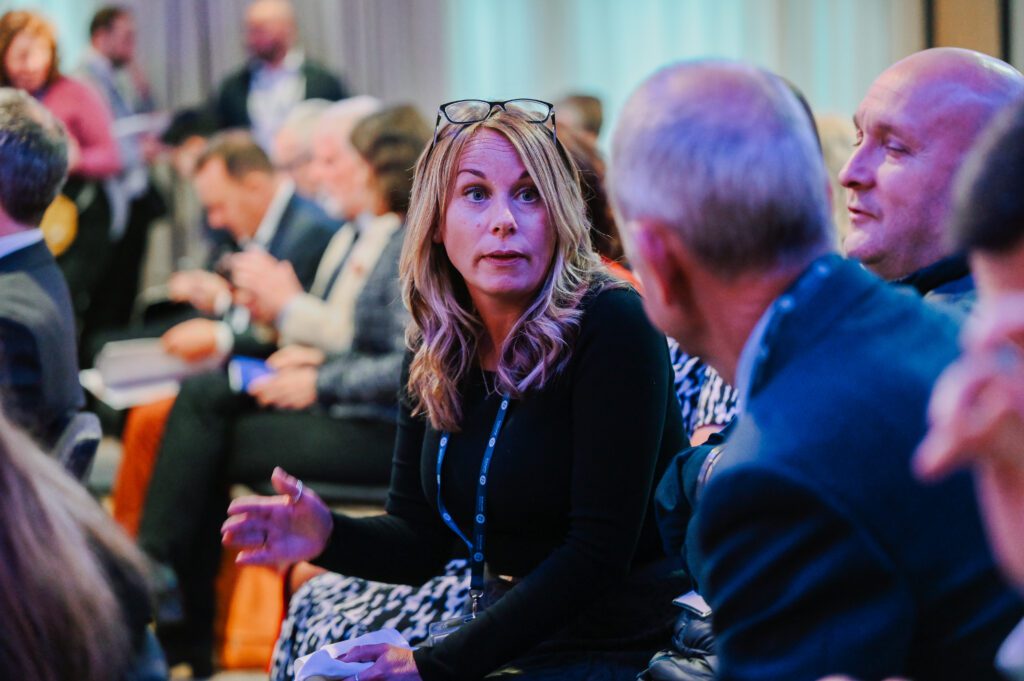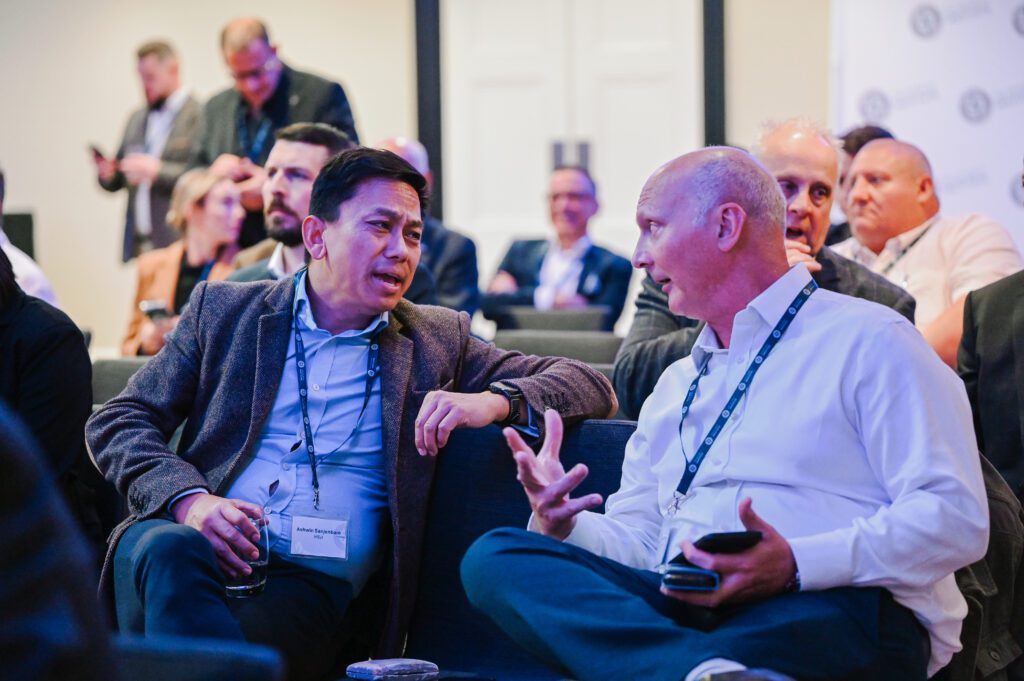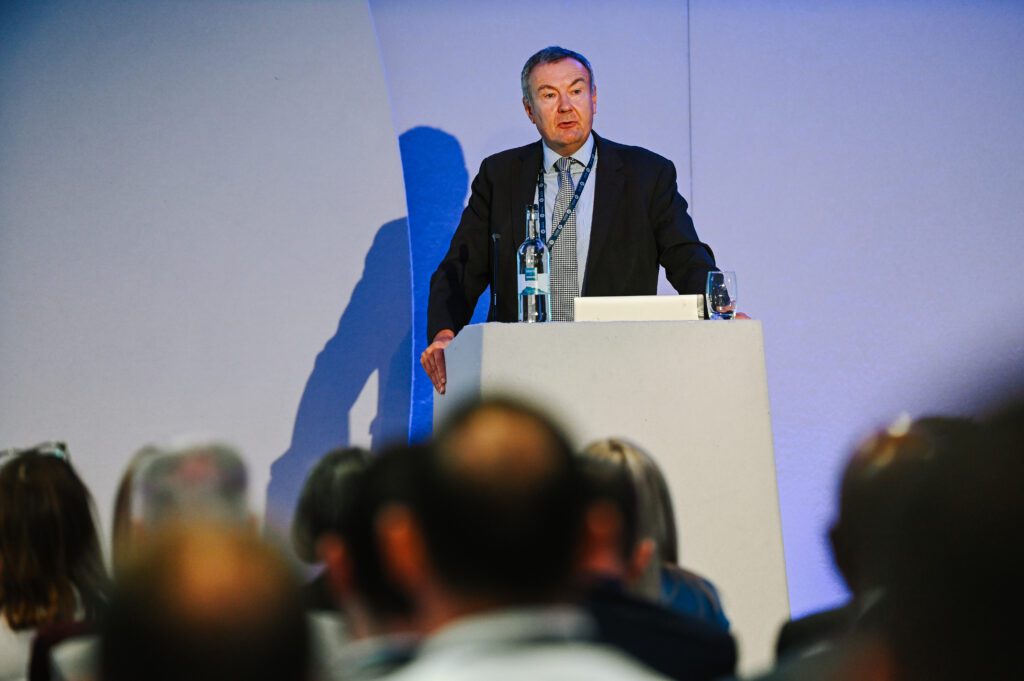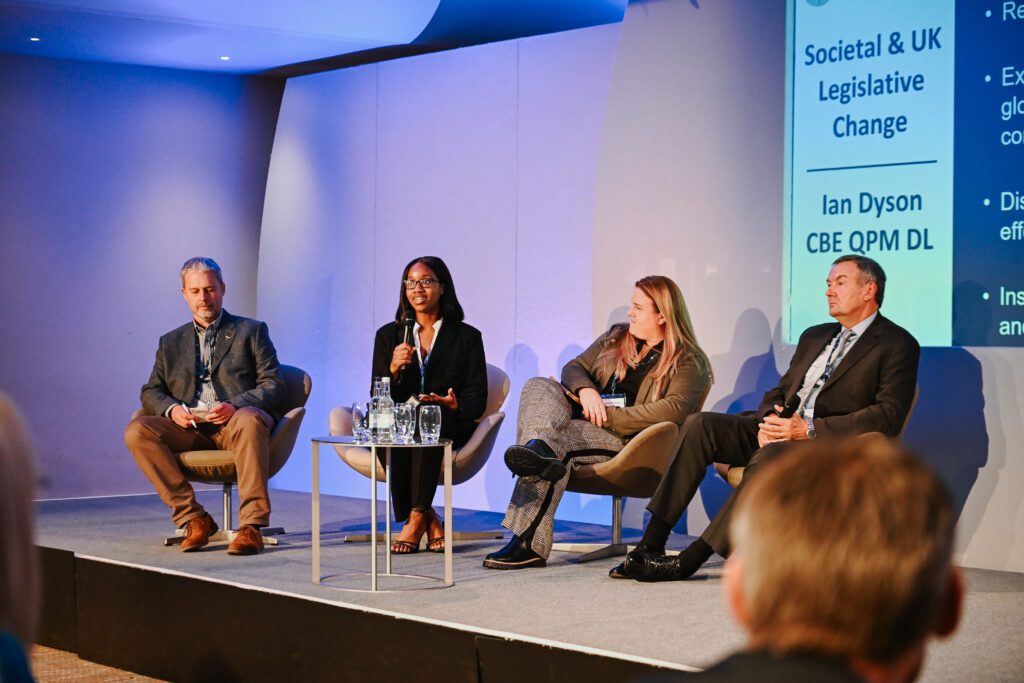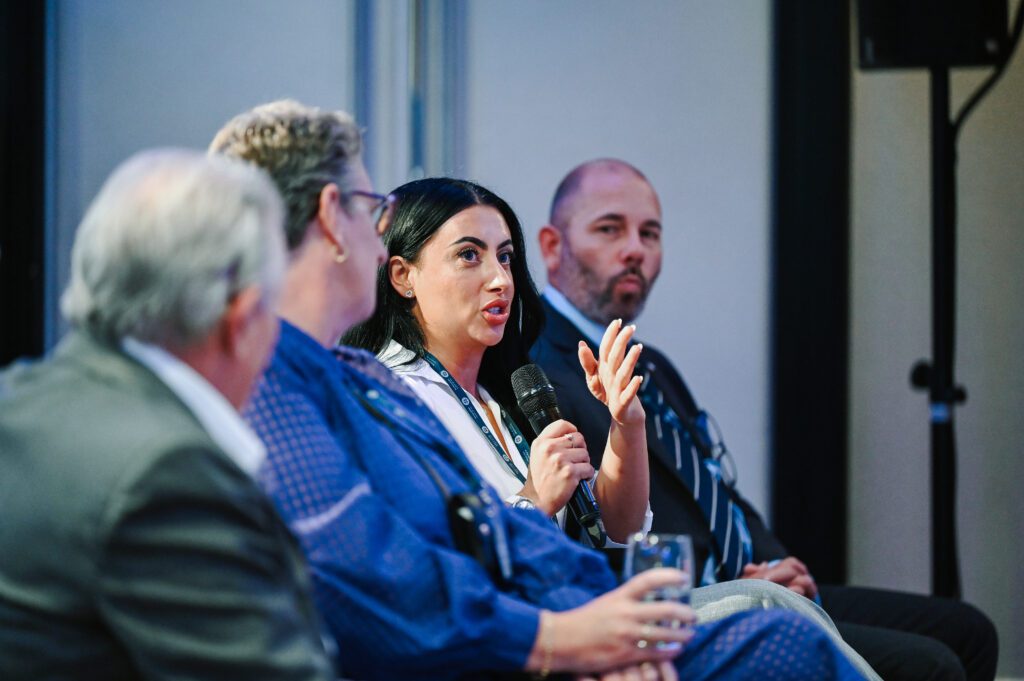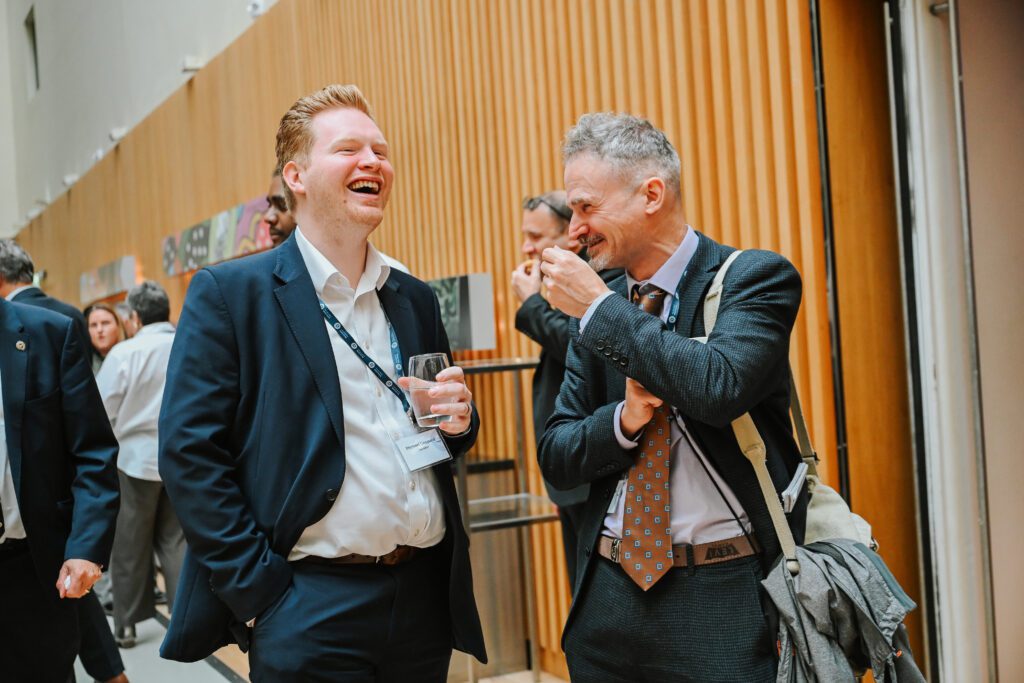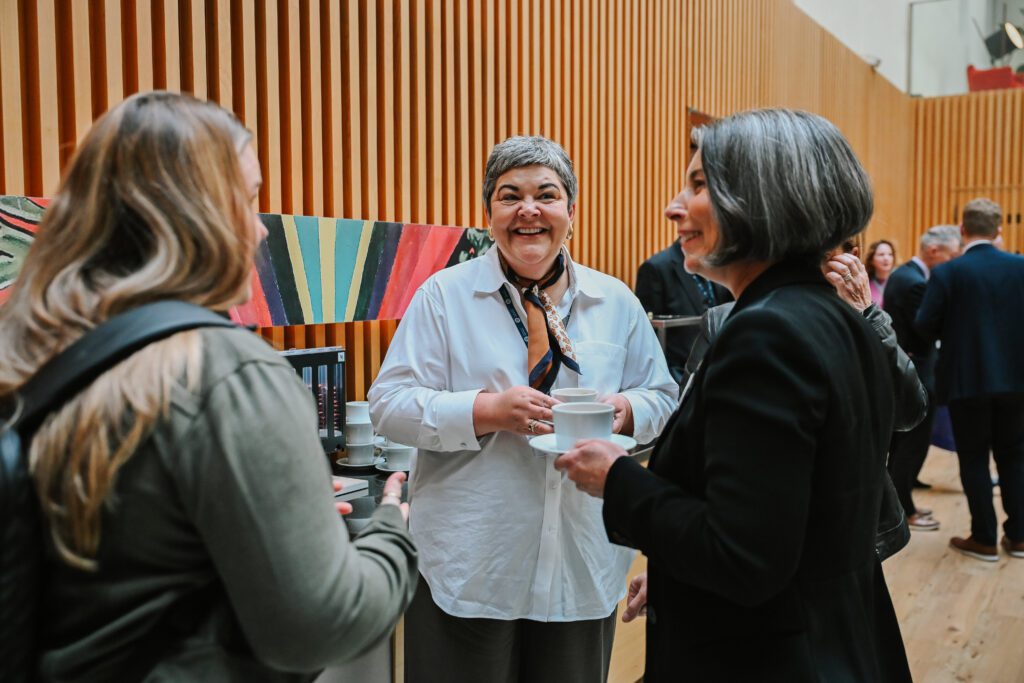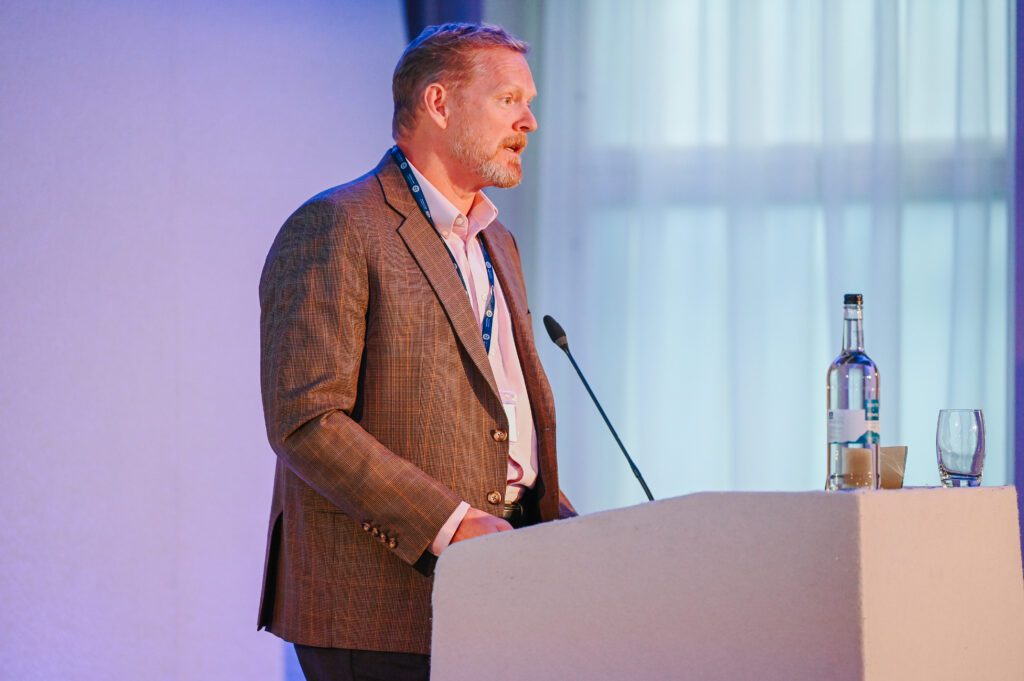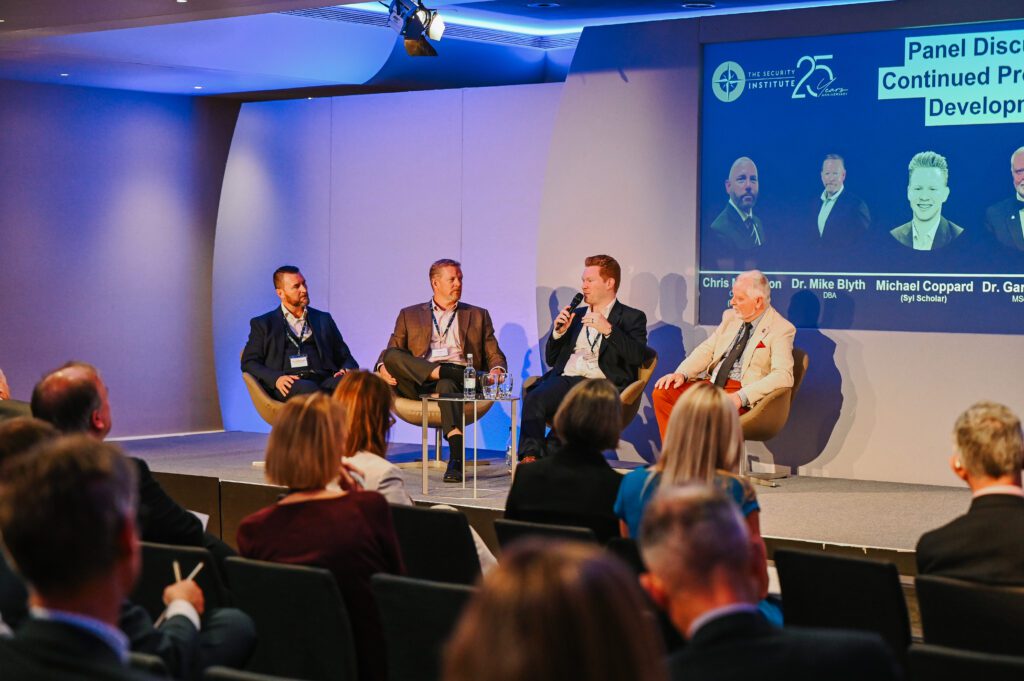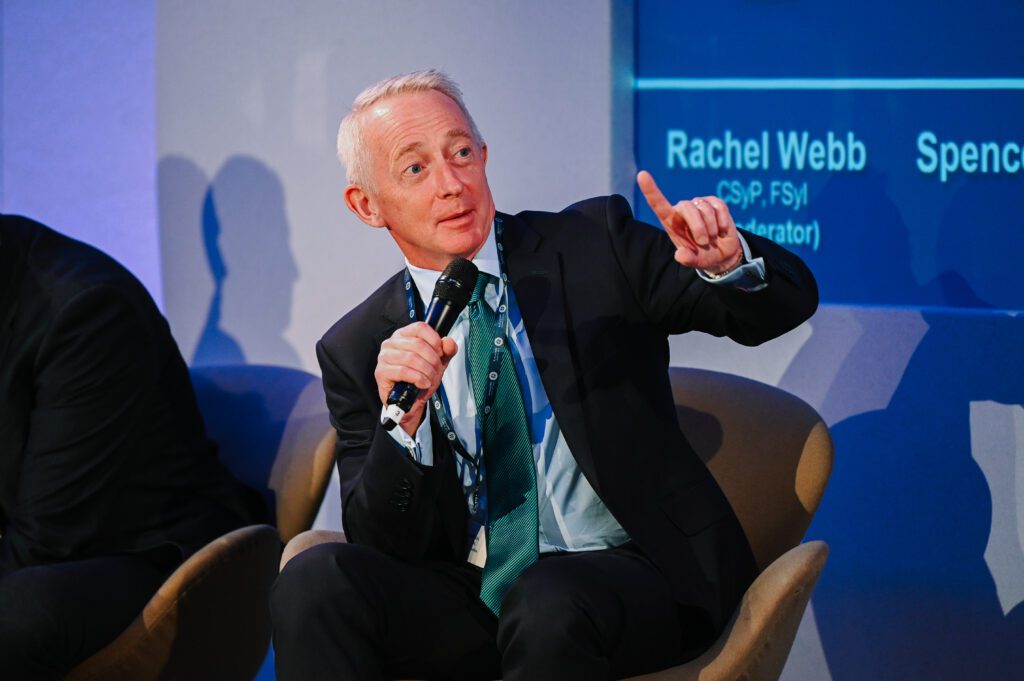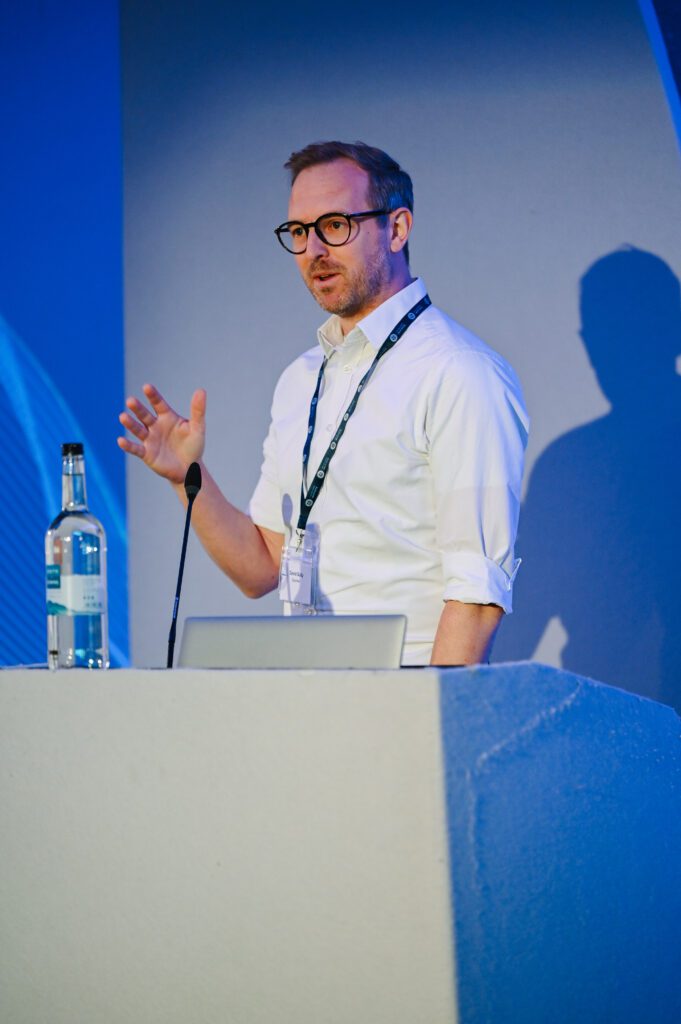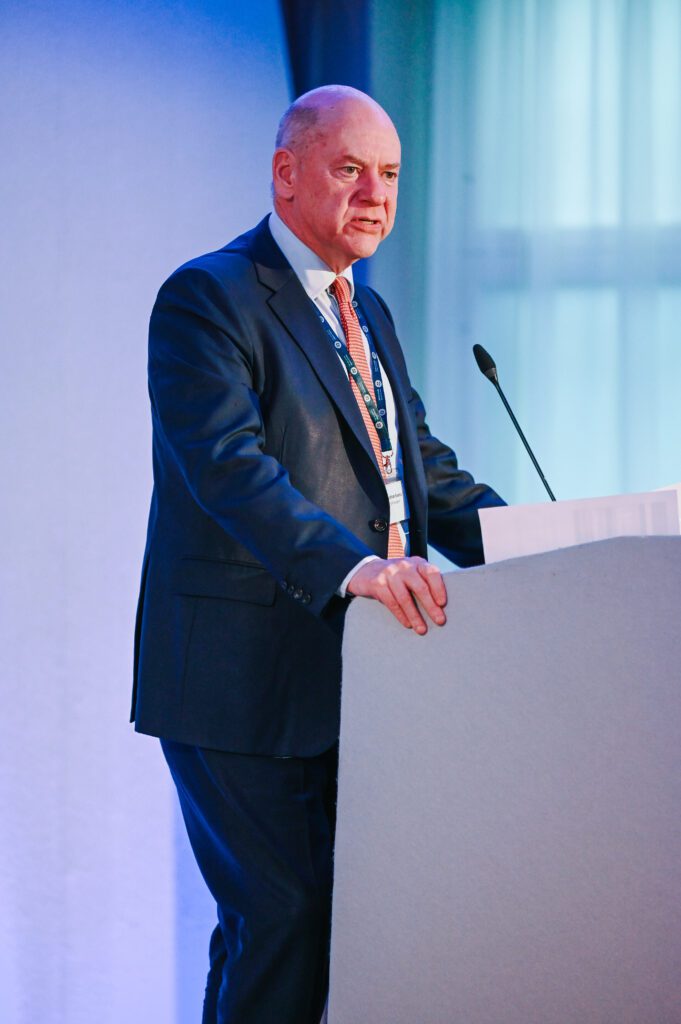15 October 2025 — The Security Institute celebrated a quarter of a century of leadership, learning, and collaboration within the security sector with its Annual Conference 2025, held under the theme “25 Years of Community: The Past, the Present, the Future – What Have We Learnt?”, which brought together leading figures from government, business, academia, and law enforcement to reflect on the evolution of the profession and to chart its path forward.
Hosted by Hayley Elvins CSyP FSyI, Director and Vice Chair of The Security Institute, the conference opened with a call to recognise the enduring value of community across every generation of the profession. “For 25 years, our Institute has stood as a home for shared learning, professional growth, and mutual support,” she said. “That spirit of collaboration will continue to define the future of security.”
In her Chair’s Address, Julie Nel MA CSyP FSyI, Chair of The Security Institute, reaffirmed the Institute’s strategic vision as a “cornerstone of societal resilience”—one that ensures the profession is recognised for its essential role in safeguarding people, organisations, and national interests. Nel emphasised that the Institute remains the “destination of choice for all who wish to engage with the security community,” from those entering the profession to the most senior leaders.
Lord Evans of Weardale KCB DL, the Institute’s recently-appointed President, delivered the Welcome Address, and reflected on how professionalism in security has evolved over the past 25 years, noting that “speaking truth to power is a key aspect of professionalism.” He underlined the enduring importance of education, ethics, and collaboration across public and private sectors, warning that “we’re back in an age of overlapping threats — state, criminal, and terrorist — and the traditional models of law enforcement are struggling to keep pace.”
Representatives from the National Protective Security Authority (NPSA) provided a 25-year retrospective on the evolution of the UK’s national security landscape — from Northern Ireland-related terrorism in 2000 to today’s hybrid, state-linked threats.
The morning sessions explored the shifting geopolitical and technological landscapes that continue to redefine global security. David Kilby OBE, Executive Vice President of Strider Technologies, presented an incisive analysis on “Globalisation, Vulnerability, and Security: China and Russia’s Impact on Western Institutions.” Kilby outlined how the weaponisation of interdependence and cyber capability has transformed the international security environment. He contrasted Russia’s focus on regime endurance with China’s pursuit of technological supremacy, noting: “We’ve degraded our ability to protect our borders, institutions and economies.”
Kilby called for diversification of supply chains, funding transparency, and stronger academic safeguards: “Economic security is national security.”
This was then followed by a lively panel discussion featuring Director of The Security Institute Rachel Webb CSyP MA MSyI as moderator; Independent Security Consultant Spencer Andy; Group Security Controller at Bowmer & Kirkland Raegan Moss MSc and Director at SSIR Partners Martin Schwarz, as well as David Kilby himself. Spencer Andy stressed the need to translate security language for non-specialists to safeguard intellectual property, while Raegan Moss argued that “security must be seen as an enabler, not a hindrance.” Martin Schwarz highlighted convergence as “the key to managing insider risk intelligently, not just compliantly,” and the panel collectively called for stronger education pathways and governance to embed a proactive security culture.
David Sully, Chief Executive Officer of Advai and former UK diplomat, kicked off the second session with his talk “The Boiling Point: How Data, Automation and AI Gradually Rewired Global Security.” Tracing the digital revolution from 2000 to 2025, Sully warned of the emergence of “data blackholes” and the erosion of human oversight in decision-making. “Artificial Intelligence has become both a tool and a target,” he observed. “Our challenge is to preserve truth, context, and human judgement in an era of automation.”
David’s talk led to the second panel of the day, including himself, Security Institute Director Matthew Seel CSyP CNSP FSyI as moderator, James Bore MSc CSyP FSyI FBCS, Managing Director of Bores Group Ltd; Siân Doherty MSyI, Managing Director of Arc Monitoring Ltd and Calum MacWilliam, a freelance Cloud Engineer and recipient of the Baroness Ruth Henig Scholarship. In their spirited discussion, they spoke about the issues arising from technology: from misinformation and disinformation to digital identities, AI, autonomous weaponry, supply chain fragility and social media, amongst others. In particular, James Bore predicted that “AI hallucinations can’t be fixed — model collapse is coming,” while Siân Doherty reminded delegates that “AI should be a tool, not a master.” The panel urged caution over digital ID reliance and underlined the continued need for human oversight, ethics, and cross-sector standards.
The conference also showcased The Security Institute’s charitable partnership with the Internet Watch Foundation (IWF). Neil Prowse, IWF’s Head of Membership, detailed the organisation’s pioneering use of technology to combat child sexual abuse material (CSAM) online. The newly launched Image Intercept service—powered by Videntifier’s Nexus platform—has already scanned over two million images and videos since July 2025, identifying thousands of harmful materials for removal.
In the afternoon, Ian Dyson CBE QPM DL, Chair of the Chartered Security Professionals Registration Authority (CSPRA), spoke about the far-ranging impact of key legislative changes upon both the security world and wider society. He reflected on the evolution of policing since 2000, highlighting the shift from public-space crime to online threats and the growing challenge of maintaining trust in institutions in a fragmented digital age.
This resulted in a lively third session discussion, with Security Institute Director Chris Stevens CSyP MSc F.ISRM FSyI moderating a panel comprised of Baroness Ruth Henig Scholar Hannah George, Executive Assistant and Administration Manager at Agile Retail; Neil Prowse and Ruth Sharman MSyI, Event Security Manager at the Southbank Centre for Carlisle Support Services. Hannah George called for outreach and education to bridge generational gaps, urging security professionals to engage with schools and communities. Ruth Sharman advocated empathetic, customer-focused approaches at public events, and the panel stressed balance between civil liberties and protective measures online.
The closing session, led by Dr Mike Blyth DBA, Chief Resilience Officer at Sigma7, delivered a thought-provoking session titled “Education and CPD: Accelerating Professional Advancement and Supporting the Next Generation.” Drawing on extensive international experience, Blyth challenged attendees to consider whether security has truly reached its professional ceiling, and urged practitioners to embrace interdisciplinary growth across resilience, risk, and crisis management. “Blending practitioner and academic knowledge elevates not just credibility,” Blyth noted, “but also the impact of our collective voice.”
The final panel discussion of the day subsequently followed, with appearances from moderator and Security Institute director Chris Middleton CSyP CNSP MSyI and the following panellists: Michael Coppard of Surelock McGill; Chair Emeritus of The Security Institute and current Lead Tutor at the University of West London Dr. Garry Evanson MSc CSyP FSyI and Managing Director of new Corporate Partner and training provider Mercury Training Services, Paul Lawton-Jones. This final session capped off the day in great style: Dr Evanson promoted the “pracademic” model — combining operational experience with academic rigour — and Paul highlighted the success of apprenticeship routes and new security standards. Michael, a Baroness Ruth Henig Scholar, emphasised workplace education as a route to developing future leaders.
As the conference drew to a close, delegates reflected on a day that celebrated both the legacy and the future of the profession. With more than two decades of progress behind it, The Security Institute reaffirmed its position as the independent mark of professionalism within security—representing integrity, knowledge, and unity.
Julie Nel noted that The Security Institute has now surpassed the milestone figure of 5,000 active members, concluding: “Our community has never been stronger or more relevant. Together, we continue to protect what matters most—our people, our organisations and our shared future.”
Hayley Elvins rounded off the days theme with a thoughtful note: “the past teaches, the present challenges and the future is ours to shape”.
